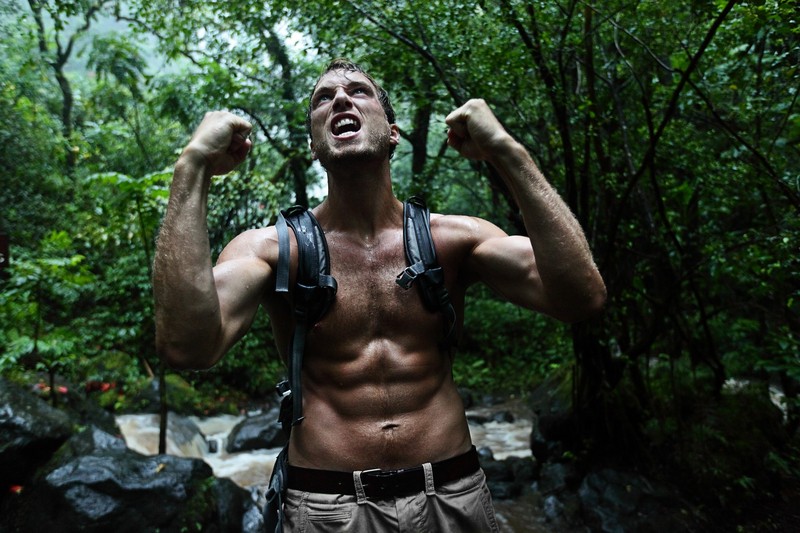Some of the items listed below will be familiar to you. And that's ok – because in order to learn new things, we may find ourselves reading up on things we're familiar with. But the idea is to remember as much as you can (so repetition is a good thing) and being open to learning new ideas, concepts and techniques. Some of which you probably hadn't thought of. Read below and see.
1.Building a fire
Learn to build a fire correctly on the first try — as you may not get a second chance.
Three essentials to building a fire are heat, fuel and oxygen. As simple as it may sound, all fires require these components. Take any one of these away, and there cannot be a fire. Additionally, there are other aspects of making a fire that must be considered: tinder, kindling and sustaining fuel.
Carry at least three independent sources of fire for each person. That way, there will besomeone who has fire-making material in the event of mishaps or getting separated. Windproof matches are a good bet, as are lighters. I also carry an essentially fail-safe fire source: a 15-minute highway flare. Even with wet tinder in driving rain, I have gotten a fire going. It obviously also serves the purpose of emergency signaling if needed.
2. Shelter
The purpose of a shelter is to keep dry and warm, or to keep cool or shaded when needed. The first element of shelter is clothing. Several layers are more effective than one thick layer. Avoid cotton and opt for wool, which is my personal choice since it is natural, durable, flame resistant, and retains heat even when wet. There are also various synthetic alternatives to wool on the market that are lighter and may be easier to obtain.
3. Stay hydrated
Humans need at least 2 liters of water a day for efficient travel, and more if the weather is hot or exertion is significant. A simple monitoring system is the color of one’s urine — it should be pale yellow. The darker it gets, the more water you need. Safe water for drinking is important, and care must be taken to avoid illness and diarrhea, which will dehydrate you all the faster. Boiling, chemical purification, and 0.02 micron filtering systems are all effective means of purifying one’s water.
4. Emergency signals
You may need to signal for assistance, and making yourself stand out from nature helps. I have found these tools to be useful and carry them with me whenever I go out: signal mirror, military grade; fluorescent orange survey tape, orange flags, etc.; 15-minute highway flare (use only when you spot someone, as you only have a one-time use, and it also doubles as an emergency fire starter); and a whistle (it’s loud, lasts longer than your voice, and is not a sound of nature).
5. First aid
Most injuries in the field are due to haste and inattention. A first-aid kit should be available and should contain dressing materials such as moleskin for blisters, gauze pads, butterfly closures and bandages.6. Location, location, location
Learn how to read a topographic map as well as how to use a compass. That technology has not changed in decades, nor has much of the land. A standard resource is Bjorn Kjellstrom’s Be Expert With Map and Compass. It covers all that one would need to know in orienting oneself to the land.7. Know your limits
Avoid allowing your confidence to exceed your competence. Remember, you have to walk back at least the same distance you covered when heading out from your drop zone. If you or your team gets tired, rest and set up camp for the night. There is always tomorrow, and you need the strength to get back home.
Number 7 is so important, yet so easy to overlook. How many times have you been out enjoying nature on a hike or a cliff climb and lost track of time? It's easy to do. But unless you've made it a point to keep track of your movements or have assigned someone to “clock duty”, you can find yourself in a scary situation of finding your campsite in the dark. And in case you haven't done this before, learn from our mistakes: It's not fun. Finding things in the dark increases your chances of getting lost, and….. surprise, surprise, animals come out at night. So you can find yourself face to face with a four-legged creature you'd rather not meet.
We're stoked the guys at Grit put this list together. Having a concise list like this helps us stay focused on what we need to brush up on and which skills we need to practice more.
Do You Have Any Survival Skills to Add?
If you read through this list and see something you'd like to add, or something you feel we graced over too quickly, please let us know. Any information you would like to share with us can be included in the comments section below this post. We'd love to hear from you.

In a wild environment probably a 4, in a urban environment 9.
No. I should be in the middle of the forests.
Always room for improvement.
0. If society falls I’m done. And I’m good with that. Camping is boring as $#%&!@* anyway.
6
Link broken for me
Natural food resources. (Bugs , plants)